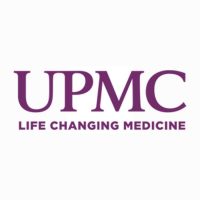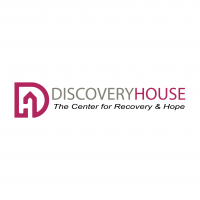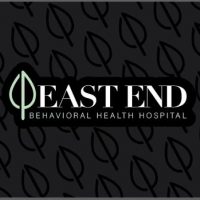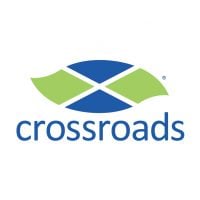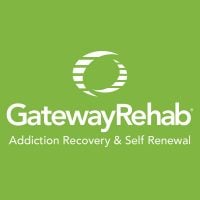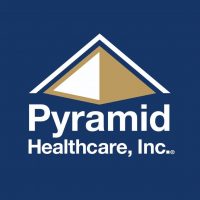UPMC Health Systems
Drug Rehab Center in Pittsburgh, Pennsylvania
UPMC Health Systems in Pittsburgh, Pennsylvania, is an accredited addiction treatment facility that offers comprehensive and evidence-based treatment programs for a range of substance abuse issues, including alcoholism, opioid addiction, substance abuse, drug addiction, and mental health disorders, with services such as detoxification, drug rehabilitation, dual diagnosis treatment, intensive outpatient programs, and outpatient care, and aftercare support programs to aid in long-term recovery.
About This Pennsylvania Facility
UPMC Health Systems, located in Pittsburgh, Pennsylvania, has been at the forefront of providing life-changing medical care for over a century. Their Addiction Treatment Program specializes in addressing alcoholism, drug addiction, dual diagnosis, mental health, and opioid addiction.
Rooted in a rich history dating back to the late 1800s, UPMC has evolved into a globally recognized healthcare enterprise, closely affiliated with the University of Pittsburgh. Their commitment to excellence and innovation has paved the way for groundbreaking advancements in the field of addiction treatment.
Accredited by esteemed organizations such as JCAHO, SAMHSA, and holding a state license, UPMC Health Systems ensures the highest standard of care. Their comprehensive and evidence-based treatment programs encompass a wide range of services, including detoxification, drug rehabilitation, dual diagnosis treatment, intensive outpatient programs, and outpatient care.
- Personalized treatment plans tailored to individual needs
- Integrated approach to address co-occurring mental health disorders
- Continuum of care from detox to aftercare support
- Evidence-based therapies and treatments
UPMC Health Systems focuses on treating various substance abuse issues, including alcoholism, opioid addiction, drug addiction, and mental health disorders. Their multidisciplinary team of professionals provides compassionate care, guiding individuals through the recovery journey.
For those struggling with opioid addiction, UPMC Health Systems offers specialized treatment programs. Through a combination of medication-assisted treatment, counseling, and support services, individuals can overcome the challenges of opioid dependence and regain control over their lives.
Genders
Ages
Modality
Additional
Accreditations
State License
SAMHSA

JCAHO
Conditions and Issues Treated
Recovering from any type of substance abuse is a long process, but it is one of the most worthwhile and life changing events any addicted person will ever go through. This is a combination of detoxing the body, rehabilitation, and recovery. There is also therapy, aftercare, and support during the entire process.
While substance abuse can take over a person’s life, it is something that can also be overcame by professionals at UPMC Health Systems in Pittsburgh, PA
With so many people struggling with opioid addiction, opioid addiction treatment is more critical than ever before. Patients often take opioids when they face a painful injury. When someone begins taking opioids such as Vicodin or oxycodone differently than how the medications were prescribed, this points to opioid addiction.
Stopping these types of medications abruptly is not safe. That is where opioid addiction treatment at UPMC Health Systems in Pittsburgh, PA comes in. Most opioid addiction treatment facilities start with detox and move to rehabilitation services while providing medical support during the process.
Getting over an opioid addiction takes time and determination, but with the right support and resources, those struggling with opioid addiction can recover and move forward with their lives.
An underlying cause often brings about addiction. Mental disorders can lie at the center, such as schizophrenia, bipolar disorder or anxiety disorder. As well as the cause of the addiction, a dual diagnosis by UPMC Health Systems helps to treat the addiction. This ensures that after treatment is complete, the patient will not fall back on old practices.
Levels of Care Offered at UPMC Health Systems
This center offers a variety of custom treatment tailored to individual recovery. Currently available are Aftercare Support, Detox, Drug Rehab, Dual-Diagnosis, Intensive Outpatient, Outpatient, with additional therapies available as listed below.
Detox is a drug rehab process that begins before the actual drug rehab treatment. It is used to remove any residual toxins left in your body (and brain) after using drugs, and it is used with the intent to help you or your loved one complete drug rehab.
If you are addicted to opiates like heroin, methadone, or prescription painkillers, you will detox with medication. This is because the withdrawal symptoms are often more intense and uncomfortable for an opiate addict than for someone who has abused or is dependent on other drugs, like cocaine.
An intensive outpatient program is a good option for someone in Pennsylvania with a milder or less severe addiction. An IOP may involve daily meetings at a treatment facility, along with personal counseling and peer meetings. Some IOP programs offer half-day treatment, while others offer full-day programs. UPMC Health Systems‘s IOP is customized per individual.
Outpatient treatment is treatment that occurs when a patient is not checked into a rehab facility. The patient may show up for therapy sessions, go through detox and engage in other therapies to help them recover. However, they will do so while they live at home in Pennsylvania.
Outpatient therapy provided by UPMC Health Systems is usually recommended as a follow up to inpatient therapy. It helps patients adapt to their normal lives after treatment. In some cases, it can also be an alternative to inpatient treatment. People may choose this route if they are unable to leave their jobs, children or if they don’t have the money for inpatient treatment. However, inpatient treatment is the best way to recover from addiction.
Therapies & Programs
Individual professional counseling or individual therapy refers to the one-on-one interaction between a patient and his or her counselor. Individual therapy allows for more privacy, one that group interactions can’t provide. Therefore, it becomes easier for a person to unload and become more open to his or her counselor.
Another benefit of individual therapy at UPMC Health Systems in Pittsburgh, PA is that all sessions aim to speed up a single person’s progress. It makes it easier for the counselor and the patient to deal with the central issues, which are likely the culprits of substance addiction.
Once the roots of the problems are addressed, it becomes less challenging for a recovering patient to maintain sobriety and brush off temptations.
Families are not always as supportive as they could be, but by opting for family therapy, many recovering addicts are able to understand their addiction and get the support they need to get sober. These therapy sessions at UPMC Health Systems in Pittsburgh, PA involve all members of the family who play a role in the recovering person’s daily life. They work together to overcome past issues, avoid triggers, and remain strong and supportive of each other.
In group therapy, the patient undergoes sessions with other patients dealing with similar problems under the guidance of a trained counselor. The members of the group interact with each other and talk freely about their issues. The recovery of members of the group from the problems that they face gives the patients confidence that they can also overcome their addiction.
Group therapy at UPMC Health Systems reduces the feeling of loneliness and improves the coping skills of the patients. Group therapy provides patients with continuous feedback from other members. The group dynamics ensure that members start having some structure and routine in their lives.
Dialectical behavior therapy (DBT) is a method of individual and/or group counseling that focuses on acceptance and change. DBT can be very effective in developing coping strategies for negative emotions.
Cognitive behavioral therapy (CBT) is a way of addressing concerns through talking. Talking through issues can identify sources of discomfort or unhealthy thoughts. CBT is a healthy way UPMC Health Systems addresses some behaviors which may be bringing unintended consequences in a persons life.
Rational Emotive Behavior Therapy (REBT) is a type of cognitive therapy. It is based on the principle that irrational thoughts are responsible for the emotional and behavioral changes in addiction. The therapy starts with identifying the underlying irrational thoughts. These thoughts are then challenged and opposed logically and then replaced with positive thoughts.
Nutrition therapy involves providing healthy diet and improving the eating habits of the patient. Expert dieticians provide individualized meal plan, that addresses the specific nutritional deficiencies. Nutrition therapy also teaches the associated life skills such as cooking healthy food and grocery shopping. It helps to overcome the food cravings that are seen in certain addictions.
NRT, also known as nicotine replacement therapy, allows someone to get the effects of nicotine without chewing or smoking. It is often done with a patch, allowing those who want to quit relying on nicotine to better manage their cravings. As the cravings get easier to manage, the doses of nicotine get reduced until nicotine is no longer needed.
Payment Options Accepted
For specific insurance or payment methods please contact us.
Is your insurance accepted?
Ask an expert, call (888) 674-0062
Additional Details
Specifics, location, and helpful extra information.
Pittsburgh, Pennsylvania 15208 Phone Number(412) 864-5300 Meta DetailsUpdated April 15, 2024
Staff Verified
What else do people call UPMC Health Systems?
People have occasionally also searched for “Western Psychiatric Institute - Addiction Treatment Program in Pennsylvania”
Patient Reviews
There are no reviews yet. Be the first one to write one.
Pittsburgh, Pennsylvania Addiction Information
Pennsylvania ranks 14th in the nation for drug-related deaths. More than 10% of all deaths in Pennsylvania have been related to drugs and alcohol. 30% of Pennsylvania youth reportedly drink alcohol monthly, with more than 20,000 teenagers having an alcohol problem. The rate of opioid misuse in Pennsylvania is double the national average.
Pittsburgh, Pennsylvania, has been hit hard by the opioid epidemic. About 24,000 people in Pittsburgh struggle with drug addiction. In the city, there were 9,813 overdose deaths in 2016. Alcohol is a factor in more than 38% of all traffic fatalities in Pittsburgh. There are plenty of drug treatment centers in the area to help you get your life back on track.
Treatment in Nearby Cities
- Phoenixville, PA (232.8 mi.)
- Fort Washington, PA (249.7 mi.)
- Warminster, PA (254.1 mi.)
- Kempton, PA (213.5 mi.)
- Houston, PA (21.7 mi.)
Centers near UPMC Health Systems
The facility name, logo and brand are the property and registered trademarks of UPMC Health Systems, and are being used for identification and informational purposes only. Use of these names, logos and brands shall not imply endorsement. RehabNow.org is not affiliated with or sponsored by UPMC Health Systems.
